Thank you for downloading this Howard Books eBook.
Join our mailing list and get updates on new releases, deals, bonus content and other great books from Howard Books and Simon & Schuster. C LICK H ERE T O S IGN U P or visit us online to sign up at
eBookNews.SimonandSchuster.com
CONTENTS

Nothing is too difficult for the brave.
PREFACE
T his book is the second in a series (that began with #1 New York Times bestseller Rise of ISIS ) published with our Oxford Centre for the Study of Law & Public Policy. Much of the research for this book took place during my summers at the University of Oxford at the historic and world-renowned Bodleian Library. Three years ago, I undertook an extensive study of the former prime minister of Great Britain Benjamin Disraeli.
I was privileged to have access to his private papers. Interestingly, Disraeli faced challenges eerily similar to the ones addressed in this book. During Disraelis time, Russia caused much commotion throughout Europe and especially with Turkey. Not much has changed in the ensuing 150 years. Disraeli famously said, Questions between Russia and England are not questions that can be settled by arbitration. They are questions in which power is involved; and power can only be met by power.
Questions of this kind can only be settled by force. I do not mean necessarily by war. I mean by diplomacy or war; because in my opinion, diplomacy is force without violence. The next year at the University of Oxford, I studied former British prime minister Winston Churchill, who prophetically warned, Unsuccessful intervention in the affairs of another country is generally agreed to be a mistake. Churchill was correct and we should heed his admonition even today. E. E.
LawrenceLawrence of Arabia. Lawrence played a pivotal role in the development of the modern Arab world. He was both pro-Arab and a Zionist. Unlike today, during this time period, this was not a contradiction. I read the entirety of Lawrences tome, Seven Pillars of Wisdom, as well as his personal letters. Colonel Lawrence had a comprehensive and personal relation with the emerging Arab political leaders during World War I.
He also encountered the Persians (the Iranians of today). He made an interesting and important observation regarding their unique view of Islam. Lawrence observed that the Shia Mohammedans from Pershia... were surly and fanatical, refusing to eat or drink with infidels; holding the Sunni as bad as Christians; following only their own priests and notables. Each of these three leaders provides valuable insight into the intrigue that is the Middle East today, because the lessons they learned from their leadership in their eras can instruct us on the challenges we face in our own time. A new alliance has developed in the last few years that has created what I call an unholy alliance.
History often repeats itself. We no longer have the luxury of simply letting history unfold. We must change the course of events, rewriting the history if needed, to preserve our constitutional republic. In this volume, I discuss and analyze the history and suggest a path of engagement to end what is the latest in a history-spanning line of attempts to export Sharia law and radical jihad around the world. We will win. We must win.
We have no option.
1
Exporting Terrorism
E very day. Every single day. We turn on the news, check our phones, or start our computers, and we see the horrific headlines. Tragically, theyve become commonplace now. We expect them.
Terrorists burn entire villages to the ground, with the childrens wailing heard miles away. Christian men are forced to kneel above explosives that are detonated by jihadists. Crucifixions. Beheadings. Christians are buried alive. Missionaries sons and daughters are slaughtered.
Women are sold into sex slaverythe younger the girl, the higher the price. Radical Islamic terrorists even distribute pamphlets explaining how Islamic law does not forbid the rape of young girls. It breaks our hearts. It makes our stomachs churn. We crave justice. But the slaughter of Christians and other religious minorities and desecration of these religions heritages arent restricted to villages in the middle of nowhere.
Nor has radical Islam stopped at cities in Iraq and Syria. The entire world is at war with radical Islam, whether President Barack Obama and progressives in the ivory towers of academia and the powerful halls of our federal government are willing to admit it or not. One thing is certain: radical Islam is at war with us. Terrorist attacks are now a reality for everyone around the world. No one is safe. No city, town, or village is out of the reach of the radical jihadists.
No one and no place is terrorist-proof. On November 13, 2015, the world was shocked by several coordinated attacks in Paris, France. I still remember watching the news, glued to the TV, talking with the American Center for Law & Justices affiliate offices in Europe and around the world. When would the next attack happen? How many more would die? I prayed for the victims, the families, and the law enforcement and military officials working to find the evil men and women targeting all of us. The Paris attacks werent the beginning, and they certainly would not be the end. In modern history, the norm has been for terror cells to disperse after a major attack like Paris.
The surviving jihadists normally scatter around the world and the cell is done. But tragically and unfortunately, after Paris, the ISIS cell in Europe stayed alive and carried out another large-scale attack in Brussels. This network of ISIS-linked cells in Europe included many jihadists who had spent time fighting in Syria. Interviews and confidential court documents seen by The Wall Street Journal define the fugitives as part of an extensive web of young men who developed a deep hatred of the West after embracing radical Islam at underground mosques When this cell struck again, on March 22, 2016, they attacked the ticketing and baggage area of the Brussels airport and one of the main subway stations, resulting in the death of at least thirty-five people, including three Americans. Another attack could strike the heart of Europe at any moment. Meanwhile, miles of ocean arent enough to keep the United States safe from jihadists.
In fact, only a month after the Paris attacks, in the United States, Tashfeen Malik and her husband, Syed Rizwan Farook, opened fire on colleagues with whom Syed had worked. The attack took place during a holiday party being held at a county convention center in San Bernardino, California. In the early-morning hours of June 12, 2016, at a nightclub in Once again, terrorism had struck on our shores. And sadly, reports showed that Mateen had been under FBI investigation numerous times previously, and had been cleared. But not all terrorist attacks on America get the same news coverage. Whenever possible, politicians work with the media to downplay terrorist attacks by ignoring their Islamist causes, calling them instead routine crimes.
This most recently happened in early January 2016 when a gunman ambushed a police officer in Philadelphia, Pennsylvania, firing multiple close-range shots into his patrol car. Sadly, while media reports of tragic attacks in Paris, San Bernardino, and Brussels remind us of the threat we face, its impossible to comprehend just how often jihadists shed innocent blood and butcher men, women, and children around the world. On November 12, 2015, two suicide bombers killed forty-three people in the streets of Beirut, Lebanon, and injured at least 239 others. This is just a small sampling of the alarming attacks that have occurred around the world. As this sample suggests, ISIS has been establishing a name for itself as a primary perpetrator of Islamic terrorism globally, reaching even to American soil. But what is ISIS, and perhaps more important, what is the cause or inspiration that has led to its development? Is ISIS truly the primary terror threat in the world today, or is it simply the most visible face of a deeper problem, a single sprout growing from a much more ominous and extensive root system?
Next page
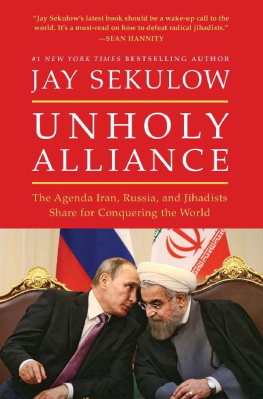

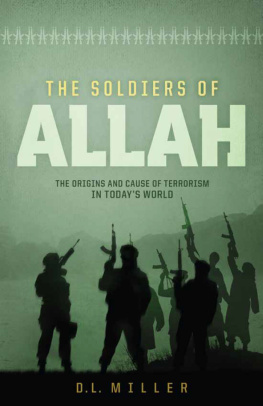
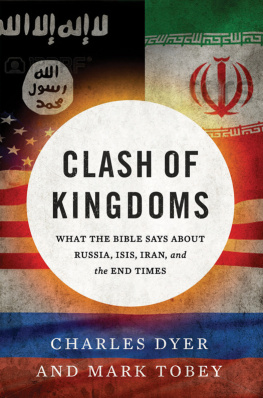
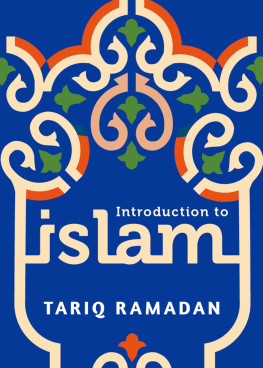

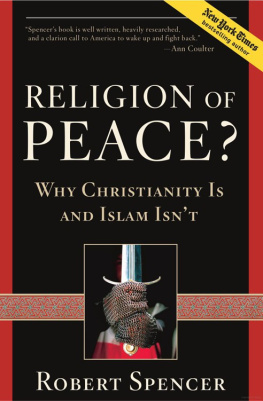
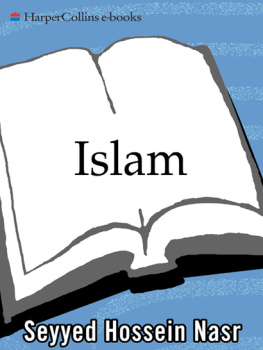
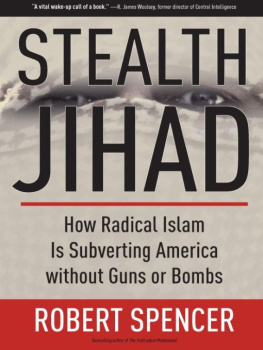
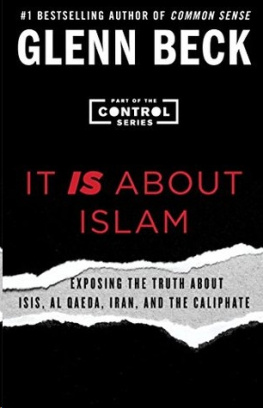
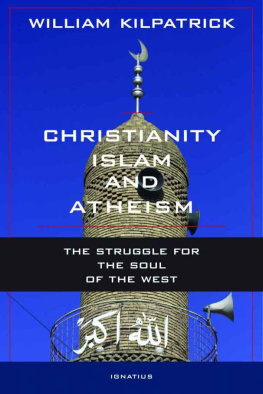
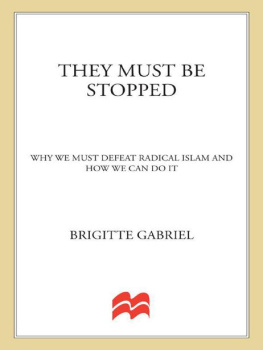

 Nothing is too difficult for the brave.
Nothing is too difficult for the brave.